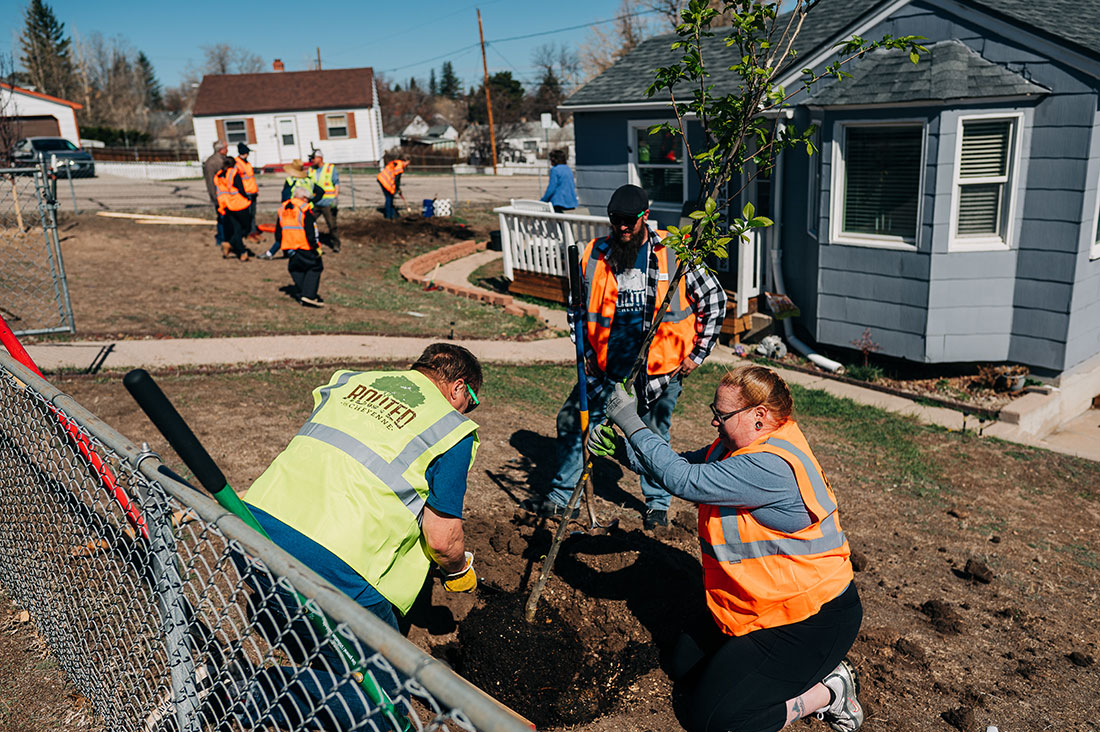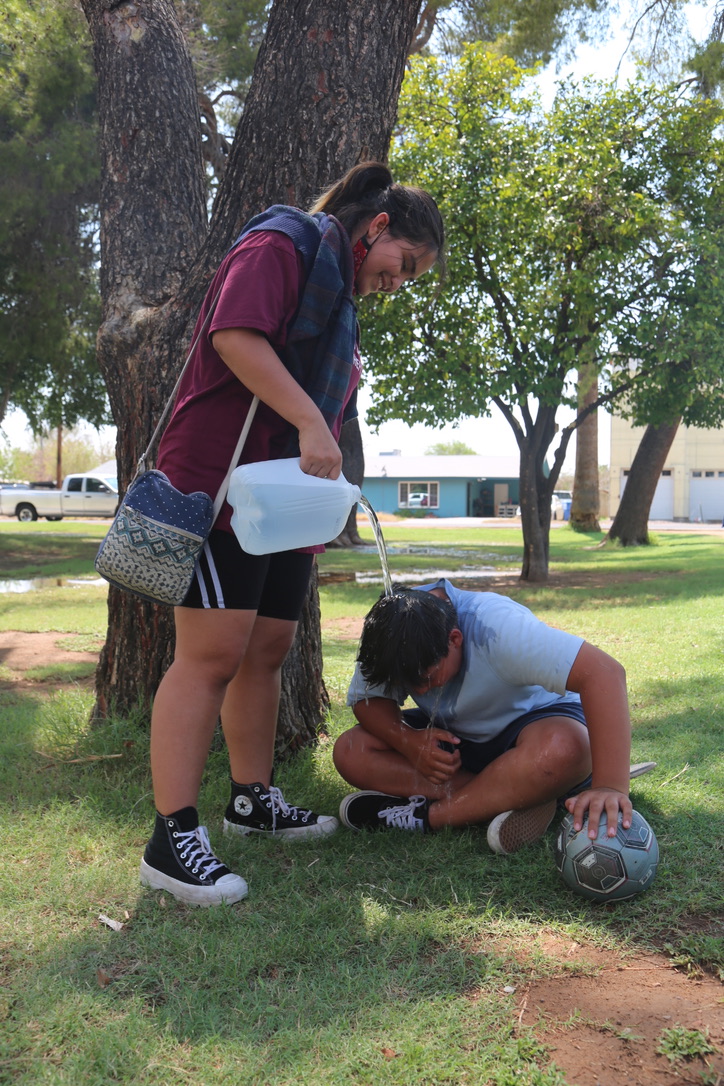
Photo Credit: Liz Putnam Photography / American Forests
ON THE HEELS of the hottest summer in recorded history, you are probably feeling grateful that trees are a “magical device” to help protect our cities from climate change, neighborhood-by-neighborhood, cooling the air while scrubbing smog and carbon dioxide alike. In fact, trees are so magical, research shows that they make people happier and smarter simply by looking at them!
That’s why American Forests believes it is a moral imperative for our organization and the nation to address the disproportionate prevalence of these life-saving devices in neighborhoods that are wealthy and predominantly white. With so much at stake, I’m very proud that this summer we have helped advance some of the biggest moves on Tree Equity yet.
Let’s start with the hard realities of the inequitable tree cover we have in our cities today. We recently released version 2.0 of American Forests’ Tree Equity Score tool with even better data and user options. Our latest data shows that the lowest-income neighborhoods in America have on average 26% less tree cover and are on average 6 degrees Fahrenheit hotter than higher-income areas. And neighborhoods with the highest concentration of people of color — regardless of income levels — have on average 38% less tree cover and are on average 13 degrees Fahrenheit hotter than neighborhoods with the lowest concentration.

Photo Credit: Joel Clark / American Forests
Because of the way urban heat islands function to store and radiate heat, extra heat in these neighborhoods is sustained through the night. Especially in homes with no air conditioning, such prolonged heat stress puts people at risk for heat-related illness and death. Research led by Duke University projects that heat-related deaths in the United States — already more than 12,000 annually — could reach nearly 100,000 per year by 2100. This immense threat will be far greater in the neighborhoods that lack trees and already face greater health burdens.
We need a holistic response to such a dire threat, which must include bringing more trees to all parts of our cities, especially those at highest risk. To that end, American Forests is proud to have helped catalyze a swelling Tree Equity movement across America. Community-based organizations in the most impacted neighborhoods are leading the action in concert with mayors, municipal agencies, companies, nonprofits and civil society actors such as churches.
Tree Equity Score is part of our movement leadership, giving these diverse actors the ability to prioritize where to invest and how to benchmark their impact. Tree Equity Score 2.0 makes this tool even more valuable for needs like planning and prioritizing within a city-wide Tree Equity program.
The burgeoning Tree Equity movement also got a big lift this summer from the Inflation Reduction Act enacted in the last Congress. Thanks to leadership from Senator Cory Booker, Senator Debbie Stabenow and Representative Donald McEachin, this legislation provided a world-leading $1.5 billion in grant funding for climate and equity-focused urban forestry. The first $1 billion in open grants was awarded this summer after an intensive, competitive process. The interest in this funding was so strong that applicants temporarily crashed the Forest Service servers.
American Forests will be working to help grantees design and implement successful Tree Equity programs using our tools like Tree Equity Score, our climate-informed urban forestry guidance and much more. We are also playing a special role through our new Tree Equity Catalyst Fund, in which we help cities, frontline organizations and non-traditional partners — like youth and faith organizations — to access funding and technical assistance to enter into this work.
America is ready for Tree Equity. We are heartened by a poll American Forests helped to commission showing 89% support across party lines for urban forests as a natural climate solution. People understand and value the way that millions more urban trees will provide cooler temperatures and cleaner air. We are already working to make sure that we build public and political support to sustain this kind of public investment into the future, and we appreciate all that you do to help make American Forests’ Tree Equity leadership possible.
For more news and updates from Jad, follow him on X (formerly Twitter) @JadDaley